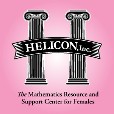 |
founder's statement |
| In the 1990s I was in charge of a program that provided HIV counseling/testing and syringe-exchange services to |
| female street-walking sex workers all over New York City. Forty percent of our clients were HIV positive—a truly |
| disturbing statistic. But the fact that almost 95 percent of them had no high school diploma or equivalency certificate |
| was almost equally troubling to me. To a woman, they all told the same story: having struggled with math in high |
| school, that struggle continued in the GED preparation programs they attended. The women said that, since these |
| programs focused primarily on the four GED subject tests that were literacy-related (reading, science, social studies, |
| and writing), they were able to pass these tests the first time they took them. But the math...well, they failed the math |
| test the first time they took it—and then failed it over and over and over again. The women said that the GED |
| preparation programs offered very little in the way of mathematics instruction; most of the teachers didn't seem to |
| know much math and none of the teachers seemed comfortable teaching math. And, despite the fact that everyone |
| they knew who couldn't get a GED certificate couldn't get it for the same reason (an inability to pass the math subject |
| test), there wasn't a single GED preparation program in the City that focused on math or had qualified math teachers. |
| Our clients were stuck "in the life" because they couldn't "do the math." |
|
| When I founded Helicon, Inc. (the Mathematics Resource and Support Center for Females), the plight of our clients |
| was foremost in my mind. But, it turns out, their plight is the predicament of the vast majority of females who take |
| take high school equivalency tests in New York City: They fail the TASC Mathematics Subject Test at |
| disproportionately high rate (see our report) and support for math-focused preparation programs is still non-existent. |
|